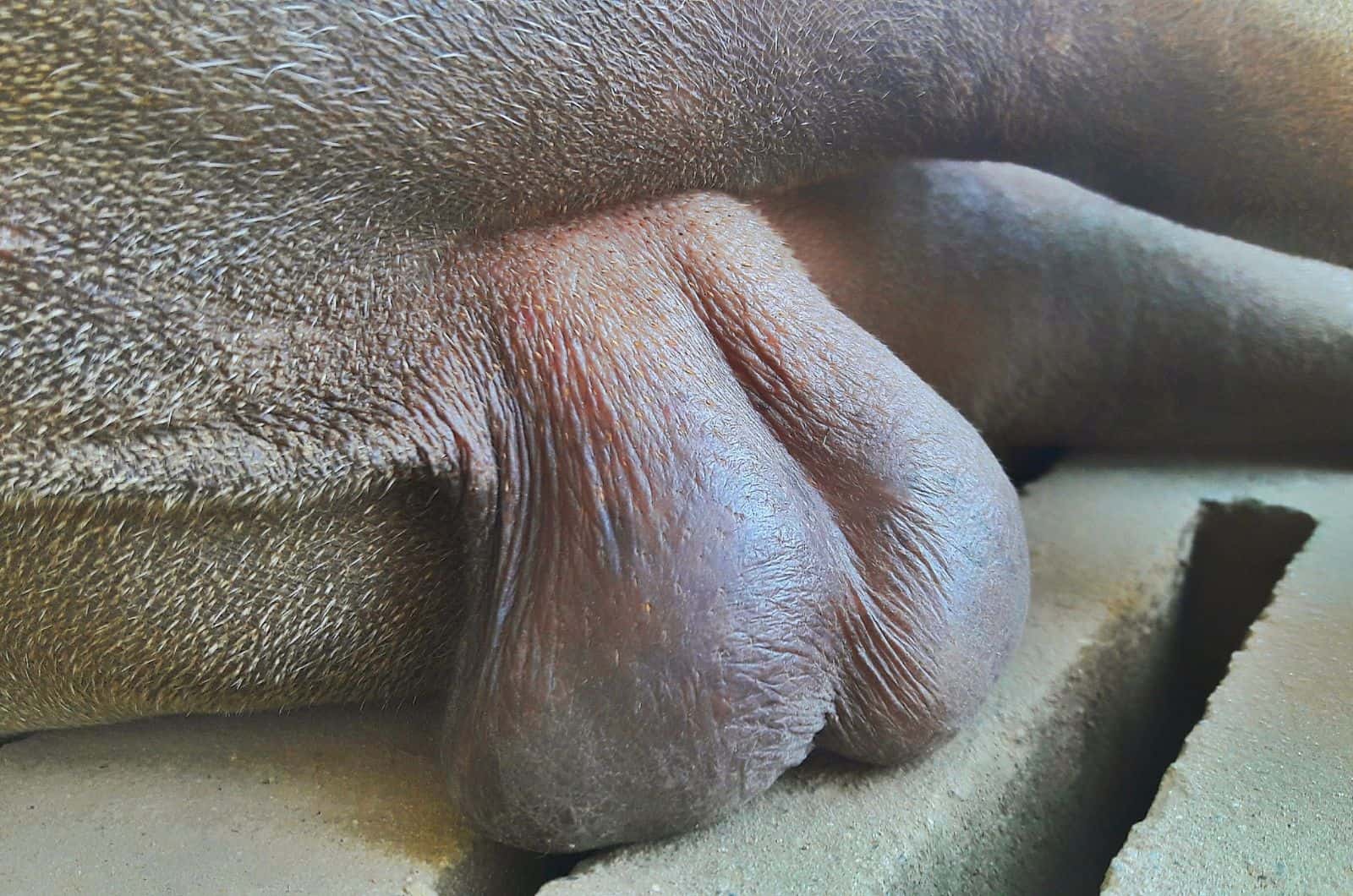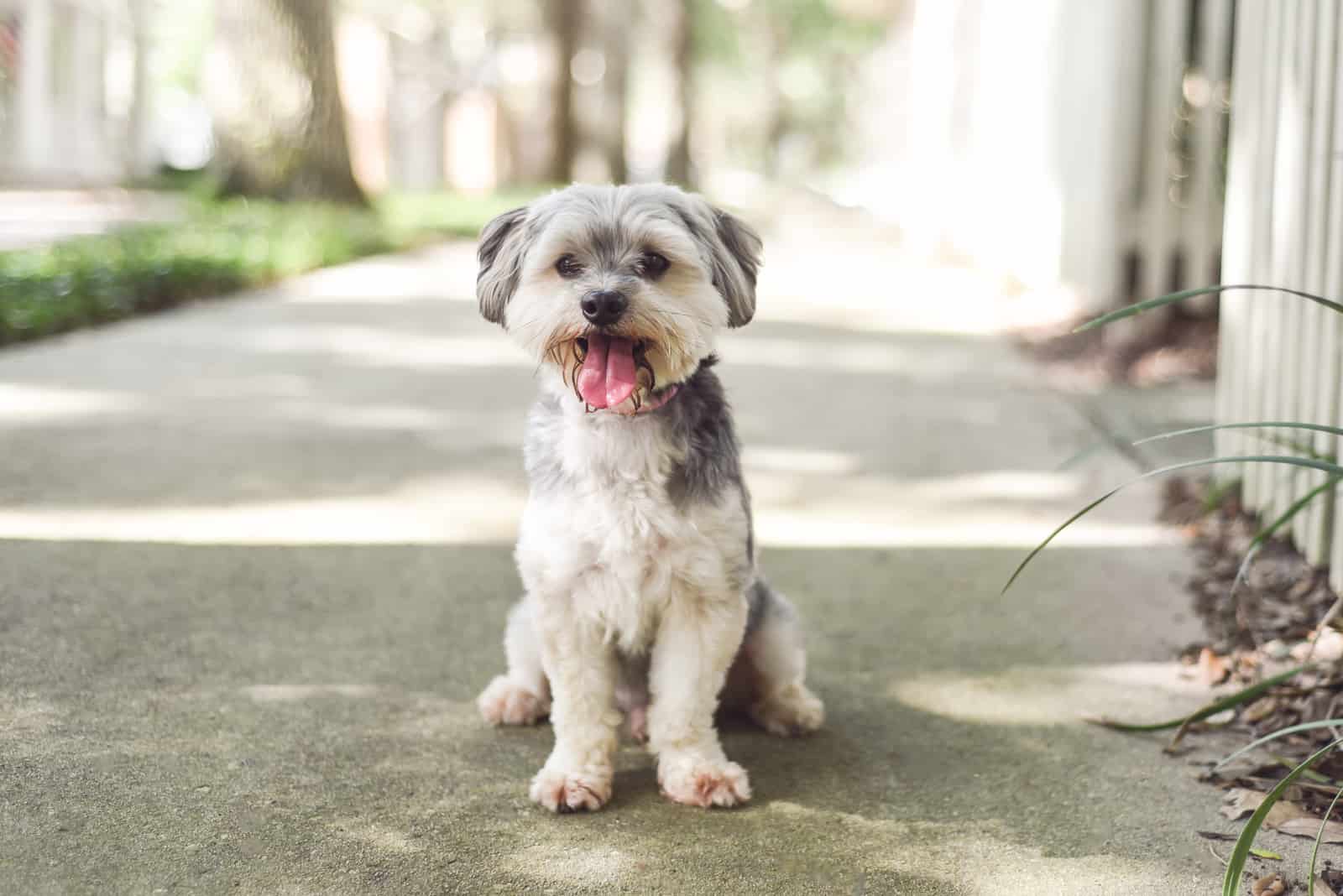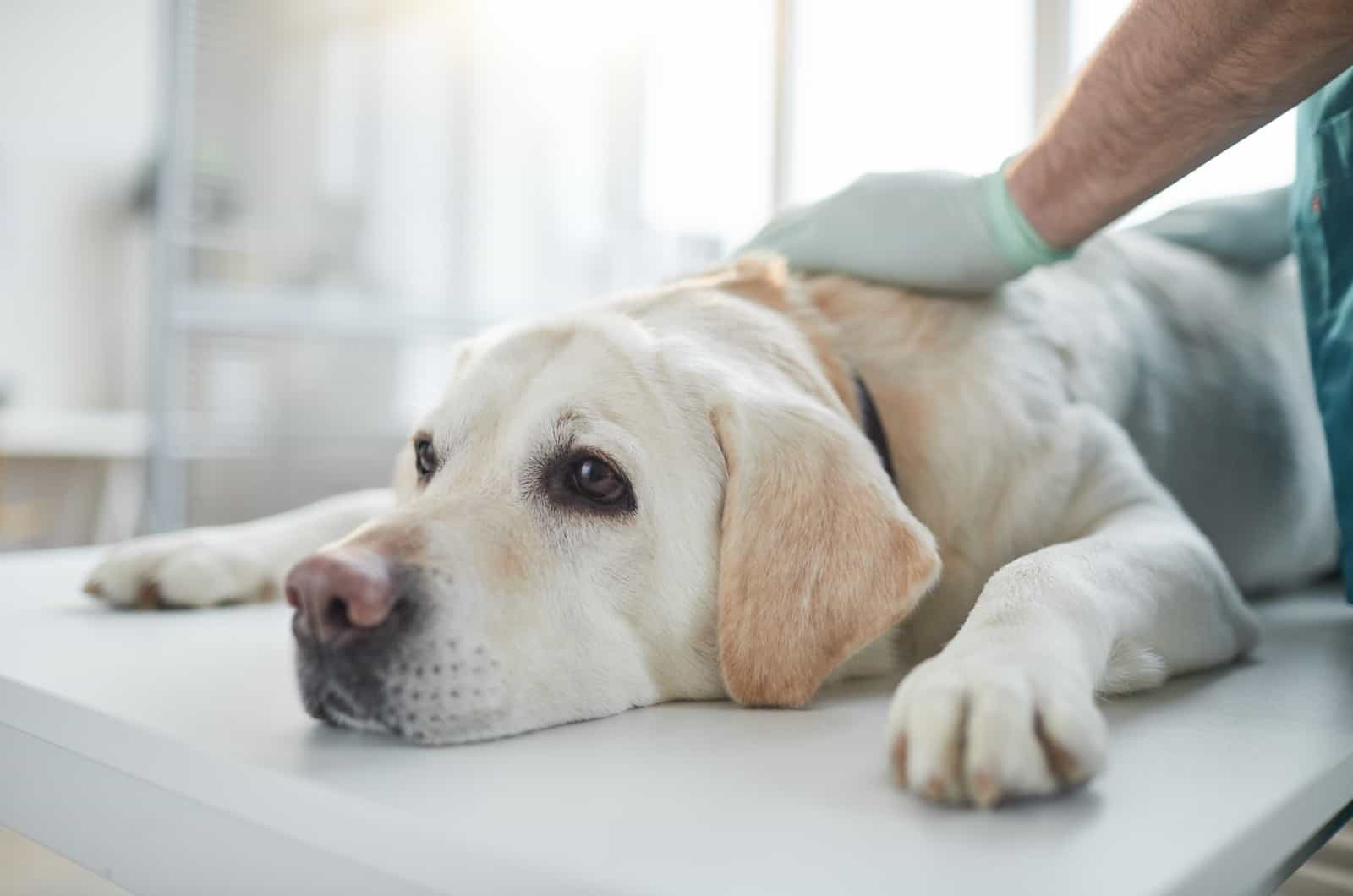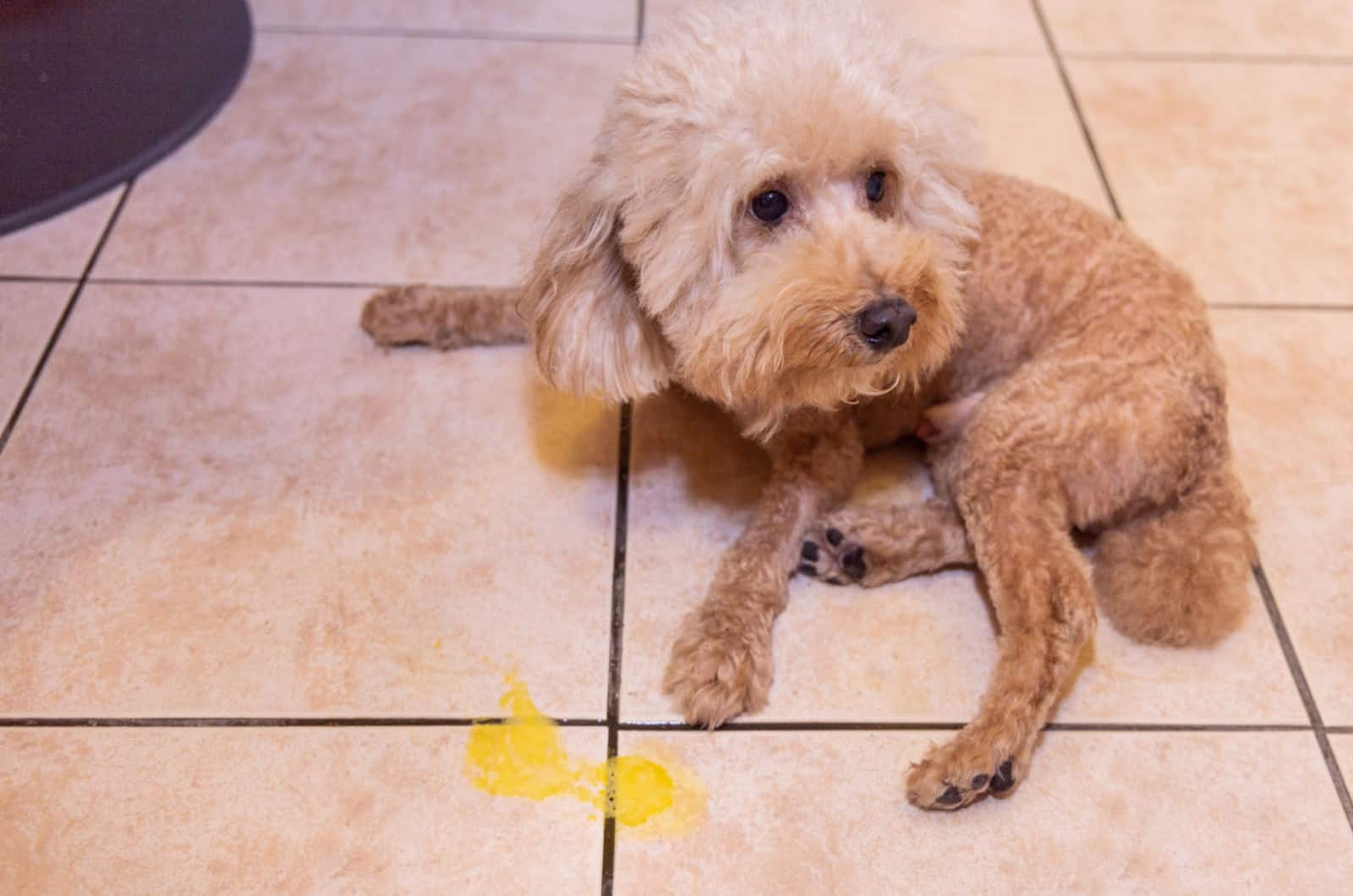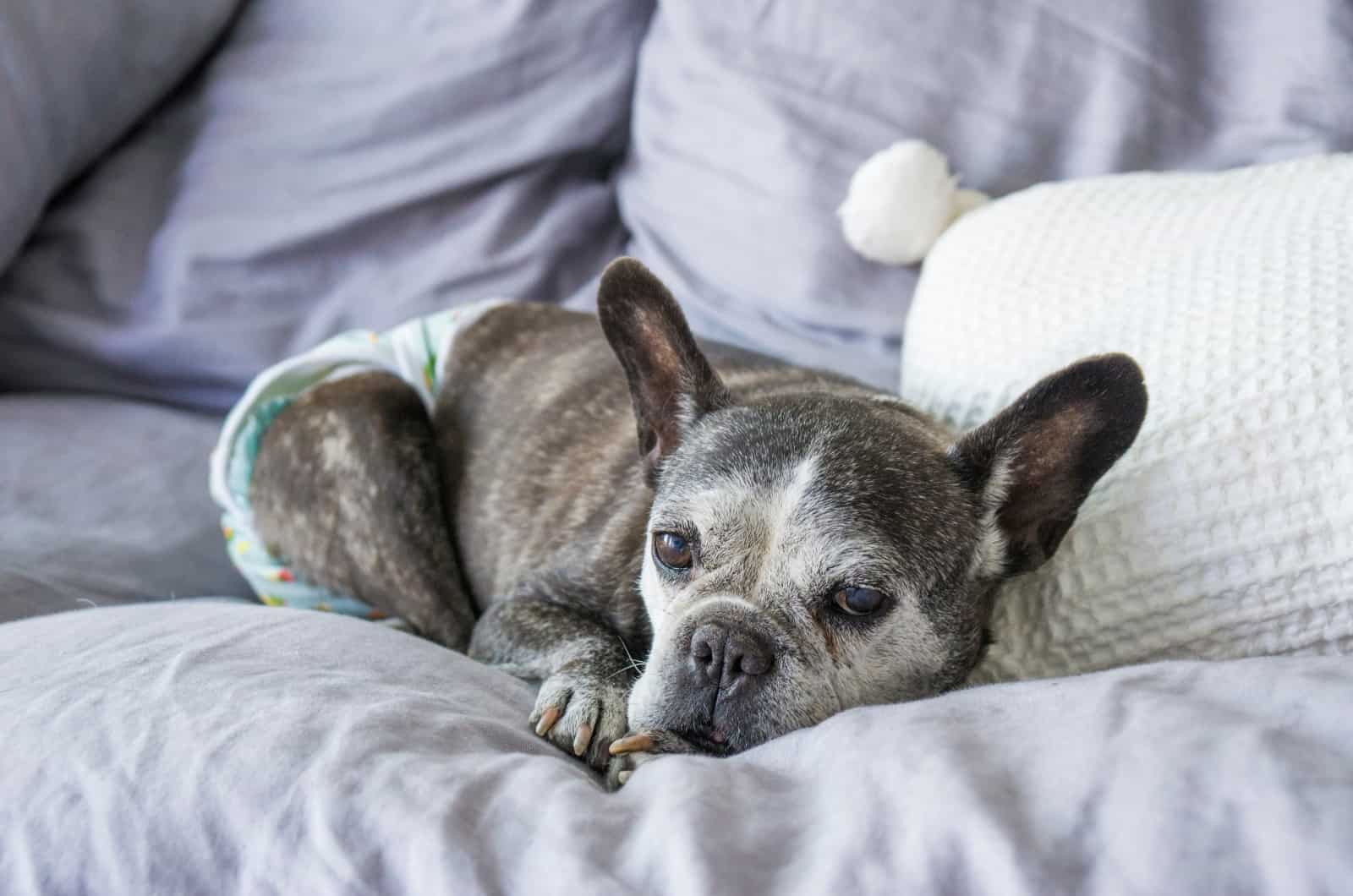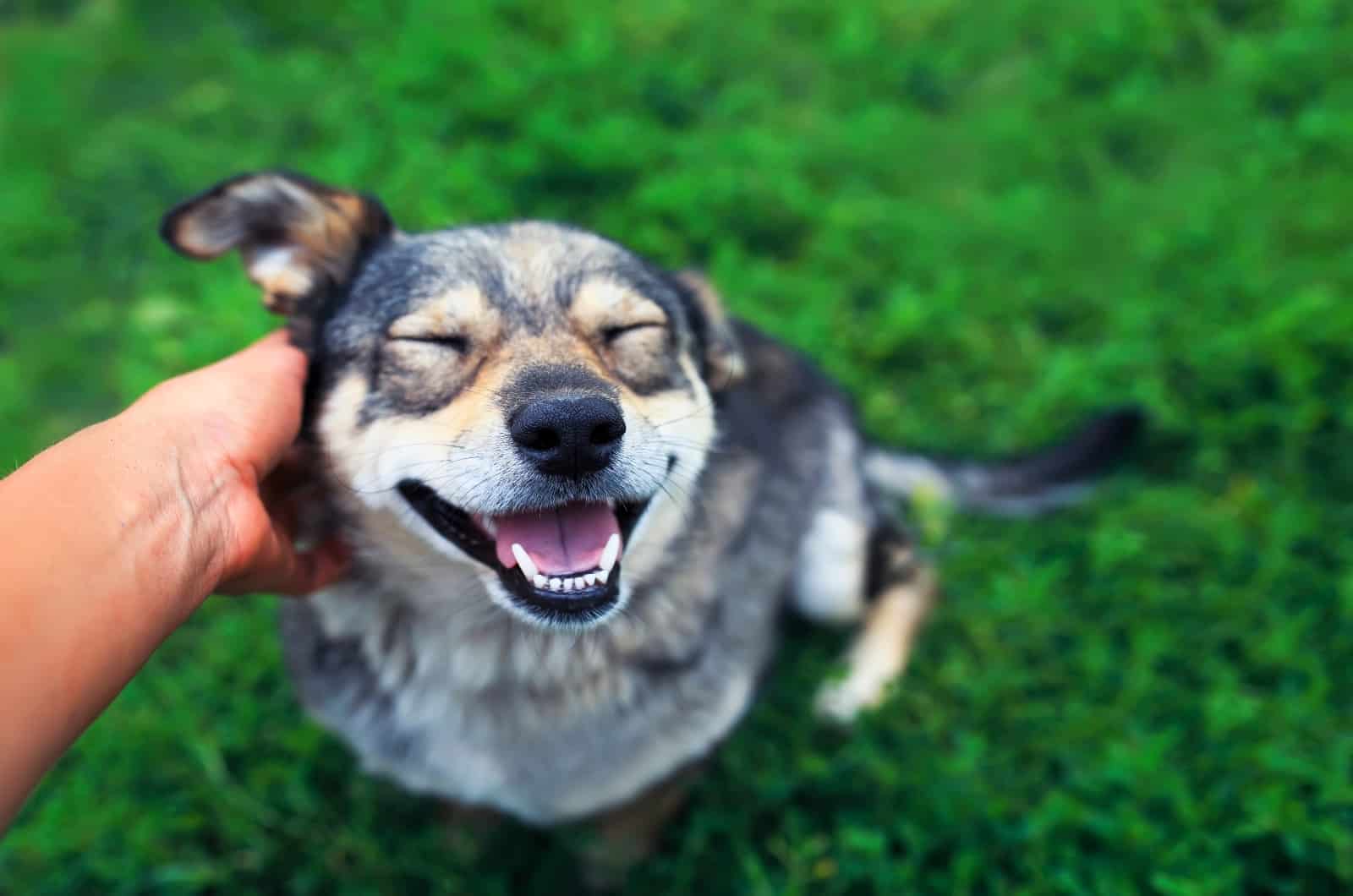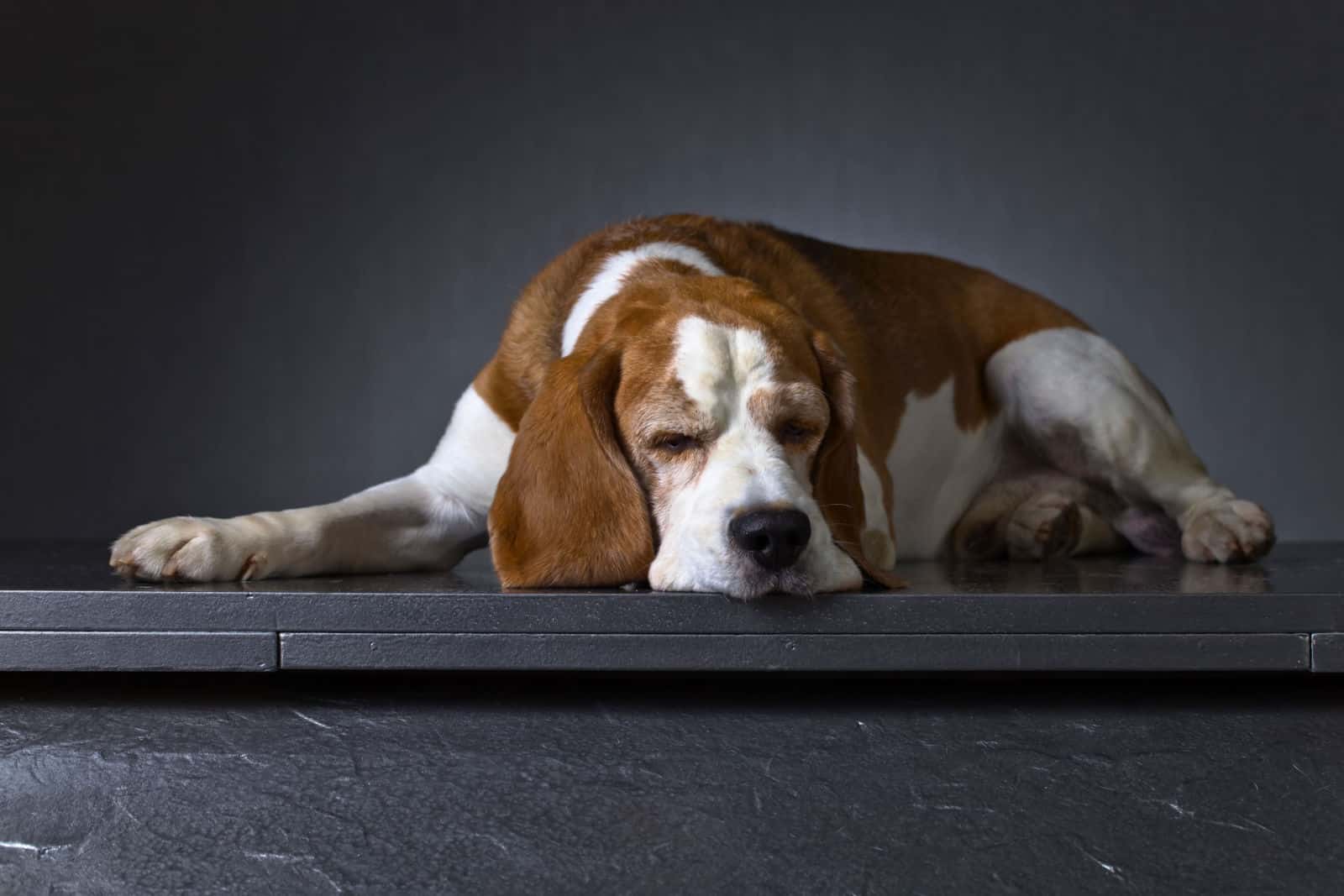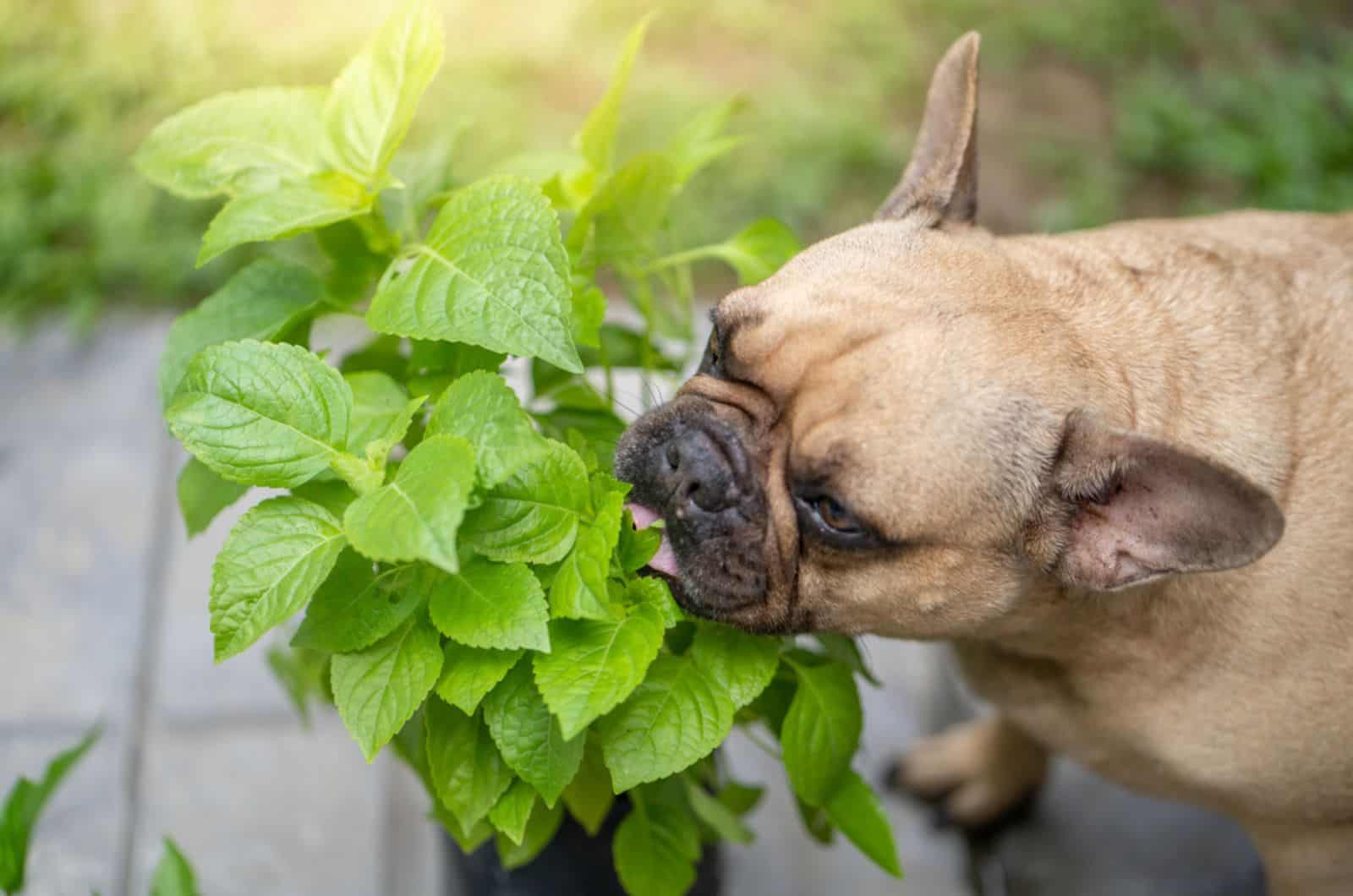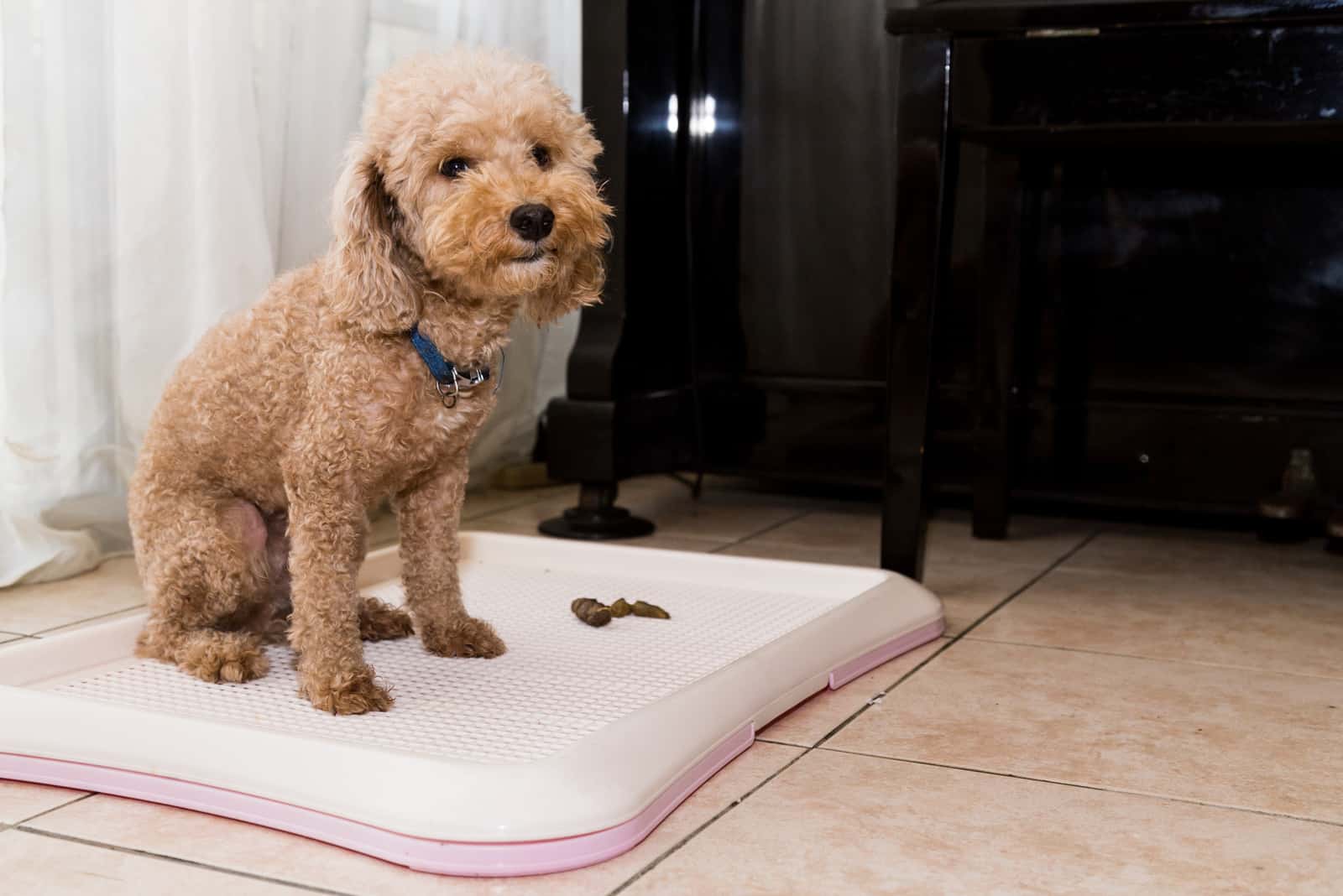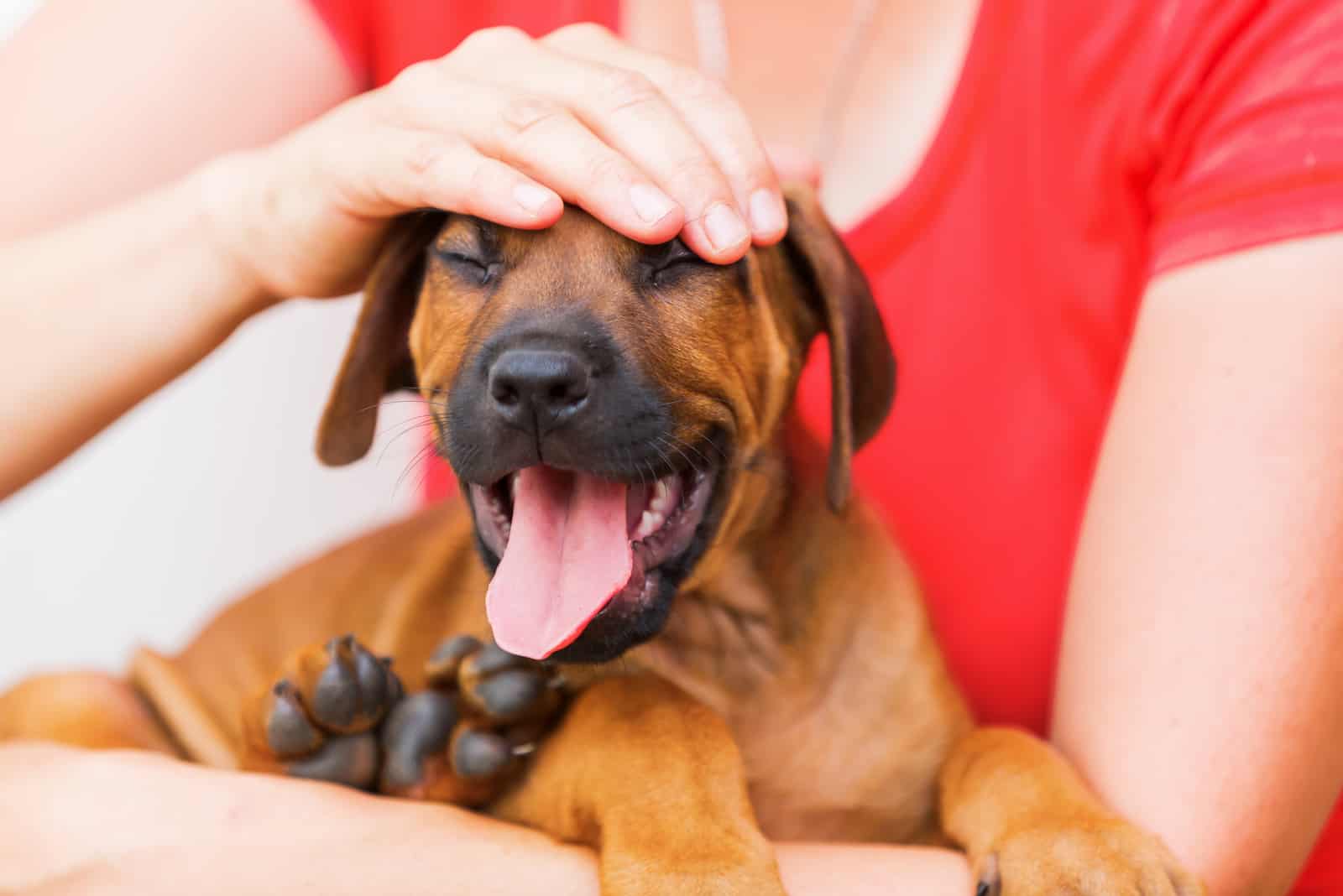So, your dog is constipated? Well, that’s a bummer! I’m sure there are some great home remedies for dog constipation that work like a charm.
We all know that unpleasant feeling and we all want it to be over as soon as possible. Our dogs are pretty likely to get constipated, because they don’t have a fiber-rich diet like humans.
There are big chances that your dog’s current diet doesn’t satisfy their daily nutrient needs. However, there’s also a chance something is wrong with your Fido. Dogs don’t get constipated just because. They either swallow something and get their bowels obstructed, suffer from a medical condition, or disagree with their diet.
Today, we will learn together why this happens, how to help your dog, and how to prevent constipation.
It’s not a pretty story to tell, but it is something that will be useful for all dog owners.
Help, My Dog Is Constipated!
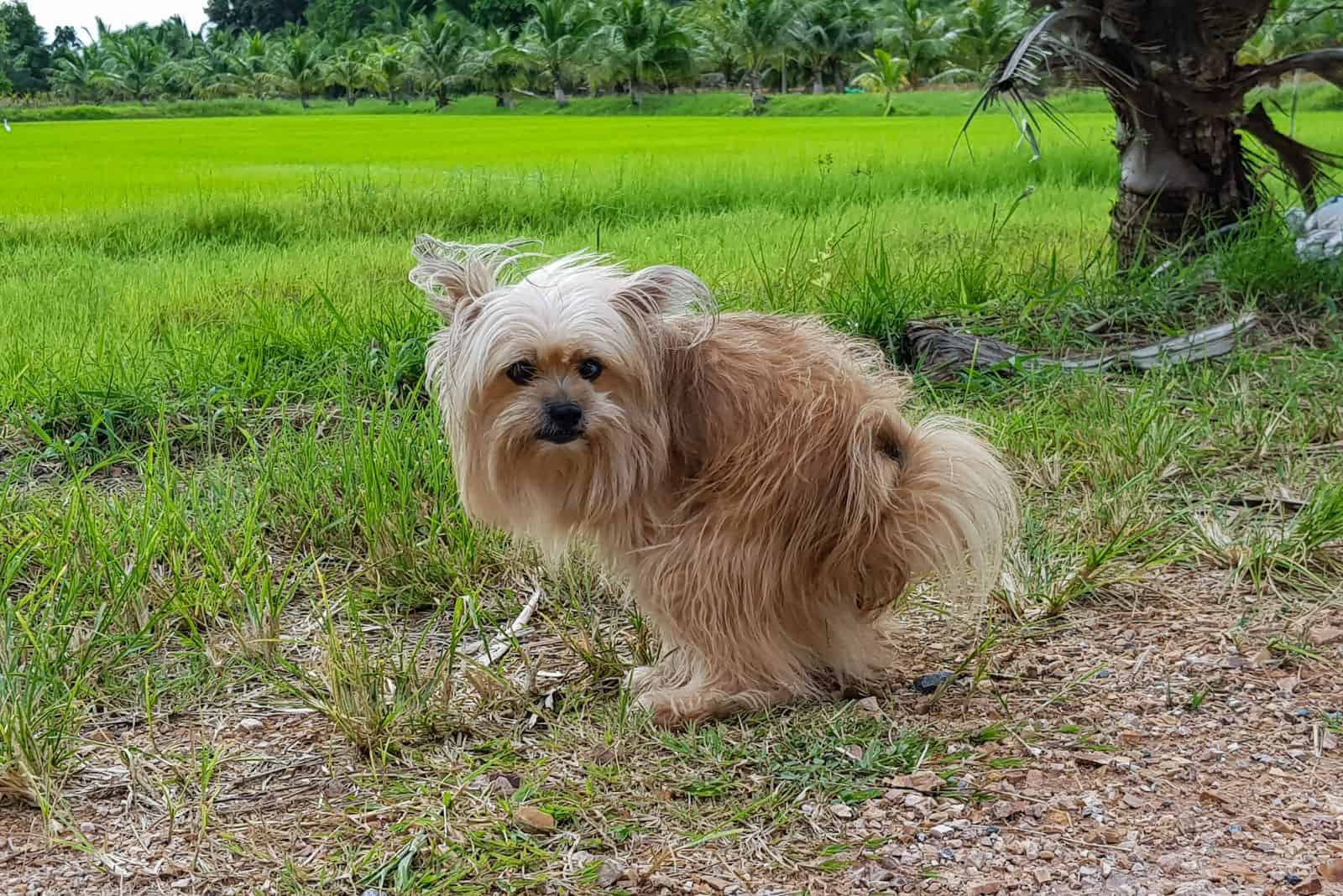
We can’t always talk about the lovely sides of owning a dog. Chances are that your pooch will have some sort of health issues that will require your help. And even bigger chances are that those issues won’t be pretty at all.
From having doggy diarrhea all night to vomiting yellow bile, or pooping white specks – all of these are issues dog owners don’t like to face. However, it’s not always rainbows and butterflies. Sometimes you have to suck it up and deal with the situation.
Dog constipation isn’t one of those visually disgusting circumstances. But it can cause discomfort for a weak stomach if you see your dog struggling to go potty.
So, let’s clear some things up first. Dog constipation. What is it? Is it just the inability for a dog to go potty?
Yes, the lack of good fiber in your dog’s diet will cause constipation or the inability to go poop. Lack of water also plays a significant role in your pup not being able to have a normal bowel movement.
This is the general description of the situation. Meaning, dog constipation caused by the lack of fiber and water will prevent regular stools and cause your dog to feel unable to go potty.
Other Circumstances
But did you know that’s not the only thing that causes dog constipation? Swallowing certain objects may cause bowel obstruction and thus constipation.
No matter which dog we have, curiosity is a trait they all share. Dogs are investigators and rely on their sense of smell. Most often they will lick something if it smells good, and some may even eat it.
It’s not unusual for dogs to swallow items that aren’t supposed to be consumed like toys, socks, and small balls. In a lot of cases, those items will be passed through, and the dog will be able to go potty in a day or so. If it doesn’t pass, the vet’s assistance is needed.
These situations are rare, but not impossible to happen.
I feel like I’m in a telemarketing commercial for what I’m going to say, but…
That’s not all!
There’s even a third circumstance that causes dog constipation. It’s a matter of health issues related to the digestive tract that cause constipation. Some of them may even be life-threatening.
I suggest you stay with me, and we will go through all the possible reasons for constipation in detail.
What Causes Dog Constipation?
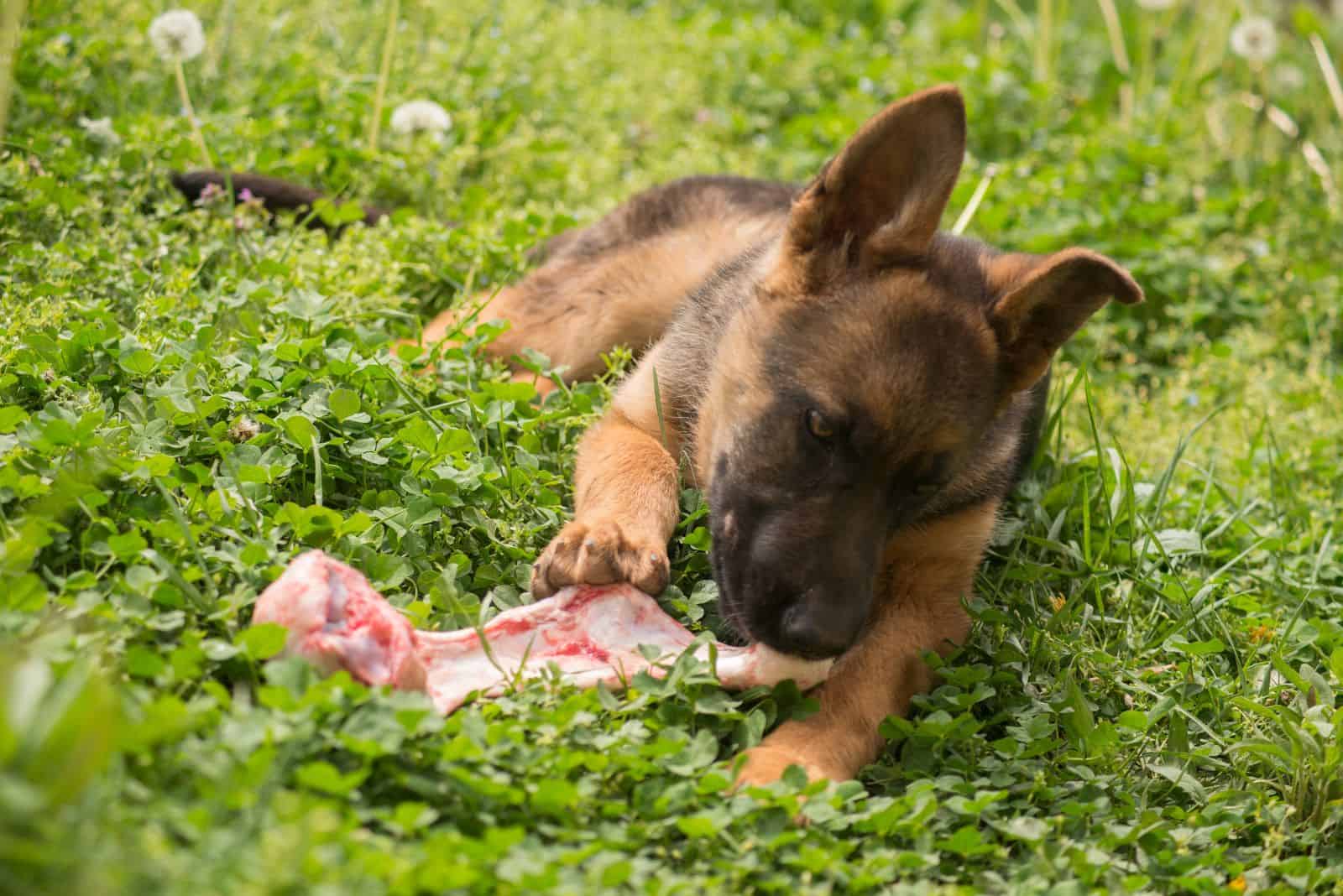
As I mentioned in the beginning, a textbook example of dog constipation is lack of fiber.
Everyone needs a diet rich in fiber, otherwise, our digestion won’t function properly. The biggest issue with dogs and their diet is that it mostly consists of dog kibble. I don’t blame dog owners for not knowing better, because ads tell them that specific dog food bags will satisfy daily fiber needs.
Unfortunately, we’re not aware of the exact number of, for example, fiber and proteins, contained in a bag. There’s a huge chance your dog doesn’t get plenty of fiber on a daily basis. If everything else is okay with your dog, then you should suspect that food is the main culprit of frequent constipation.
I suggest you talk to your vet about changing the food. Don’t just pick any bag off the shelf. Try some more prestigious brands, made using good ingredients. Or at least try to mix your dog’s kibble with canned food. Dog food cans are pricey and not usually for daily use, but they can add fiber to the diet and make the meal more enjoyable.
Another solution to the problem is switching to raw diet meals. A lot of dog breeds enjoy a raw diet because it’s tasty and so beneficial to their health. PupVine’s done a lot of pieces on raw diet meals. For example, German Shepherds enjoy eating raw, and Huskies love their meals raw too.
It wouldn’t be half bad if you check out those diet guidelines and put your dog on it for a while.
Raw diet meals are super rich in fiber because you are the one that’s adding ingredients to the meal, thus you’re the one controlling what your dog needs.
Health Issues Causing Constipation
Doggy constipation can be one of the symptoms of some severe conditions.
But calm down, because you shouldn’t immediately think something’s wrong with your dog as soon as you notice the first signs of them struggling with doing a number two.
Severe health problems that cause constipation usually come with a set of other problems.
The most common health issues related to this symptom are:
enlarged prostate gland
anal gland problems, i.e. tumors
cancer
neuromuscular problems
These are problems that cause severe cases of constipation and should be treated by your vet. This isn’t something clean water, fiber, and enough exercise will solve. Your dog will most likely need surgeries and post-operational treatment to get rid of these health issues.
Other Reasons For Dog Constipation
These days, stress is the number 1 reason for many health problems. No matter how calm of a life we have, there’s always a bit of stress present in our lives. Humans and animals perceive stress differently. What may not be stressful for you, maybe super stressful for your dog.
Simple situations like bringing new people home can trigger stress reactors in your dog. But there’s a tiny chance that will cause constipation. Frequent exposure to stressful circumstances and trauma can cause a dog to respond with doggy constipation.
Stress can be triggered by many things.
If you own a fairly active dog like a Husky, not providing him with plenty of exercise can cause a stressful reaction and thus constipation. Also, we all need a bit of activity to keep our bodies moving, as well as our bowels. When you stay still for too long, your bowels get lazy and function minimally.
Don’t be too lazy to get up and take your dog outside. Do something you both like so the time together is enjoyable and beneficial in many ways. When was the last time you took your dog for a walk?
What To Do If You Notice Your Dog Is Constipated
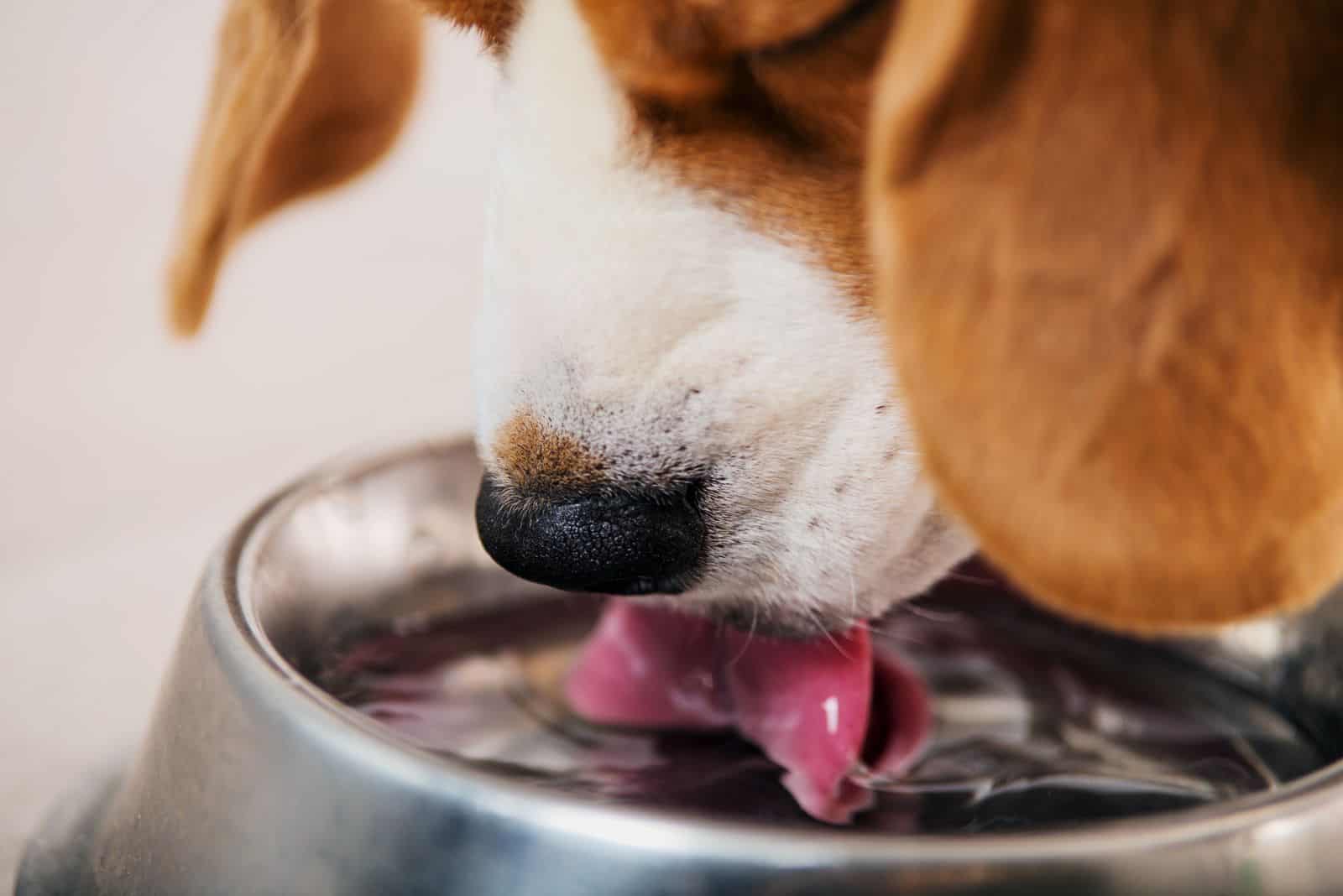
The most important thing is to not panic. Dog constipation is a relatively normal thing. Hey, we all get constipated from time to time, right? So, do you rush to the doctor? No, and neither should your pooch.
There are lots of ways you can solve this problem at home. Only some really rare situations demand a vet’s help.
Once you notice your dog is having problems with going potty, you should monitor him closely for the next 24 to 48 hours. Dogs don’t usually go for a day without pooping, but it could happen, relax. Trace back his steps. What did your dog eat? Did he drink enough water? Did he play with something small, so there’s a possibility he swallowed it? Has your dog been feeling alright lately?
Constipation can be a sign of some other health problems. Along with other symptoms like overall lack of appetite, loss of energy, and depression, it can mean health conditions that require immediate vet’s help.
However, if nothing seems wrong, and your dog pooped yesterday, then you shouldn’t worry like crazy.
Offer your dog more water, a mushier meal like the mush puppies eat, or even add some fiber-rich ingredients humans normally eat but are safe for dogs.
If nothing happens within a few hours, it’s time to pull out a trick from the sleeve. There are home remedies for dog constipation that work like charm. The right dosage can stimulate the dog’s digestion and solve constipation like so.
I encourage you to keep on reading to find out which are those home remedies. They’re items we all have at home, and even use ourselves when we have troubles going potty.
Now, we will discuss the most common symptoms of canine constipation.
What Are The Obvious Signs Of Dog Constipation?
The most obvious sign your dog is constipated is the lack of poop. Dogs poop daily, some even two or more times a day. If you notice a sudden change in behavior, like your dog avoiding pooping outside, it can be a sign of constipation. The absence of poop for longer than 48 hours is considered a severe situation and should be treated by the vet.
The second most common sign your dog is constipated is constant scooting. A dog that feels uncomfortable and wants to go number two will squat down and try to go, but there will be no results. You’ll notice your dog is straining and doing everything he can, but he won’t have any success.
A constipated dog is clearly in distress. He’s not in the mood to do anything. Seems that a dog that was happy yesterday is too grumpy today. But that’s not a change in the dog’s behavior. That’s him dealing with the discomfort constipation brings.
Signs of discomfort are squealing, hiding in the corner, and reactions when you touch your dog’s abdomen. When a dog’s digestive tract doesn’t function properly, the dog won’t let you get near his tummy. If you notice a hard or swollen abdomen, that’s also a sign of constipation.
You should be extra careful around Bloat-prone dog breeds. Retching and panting go hand in hand with bloat. Dogs that easily develop this condition need immediate veterinary help, as bloat can be fatal.
As you can see, there are situations when you suspect constipation, but it’s something else.
Lastly, the final symptom of canine constipation is the lack of appetite.
Did your dog used to run to the bowl, waiting impatiently for you to fill it? And now, he’s not really up to it? Yes, that’s a clear sign he’s not interested in food, not because it doesn’t taste good, but because he’s uncomfortable.
How Do You Get A Dog Unconstipated?
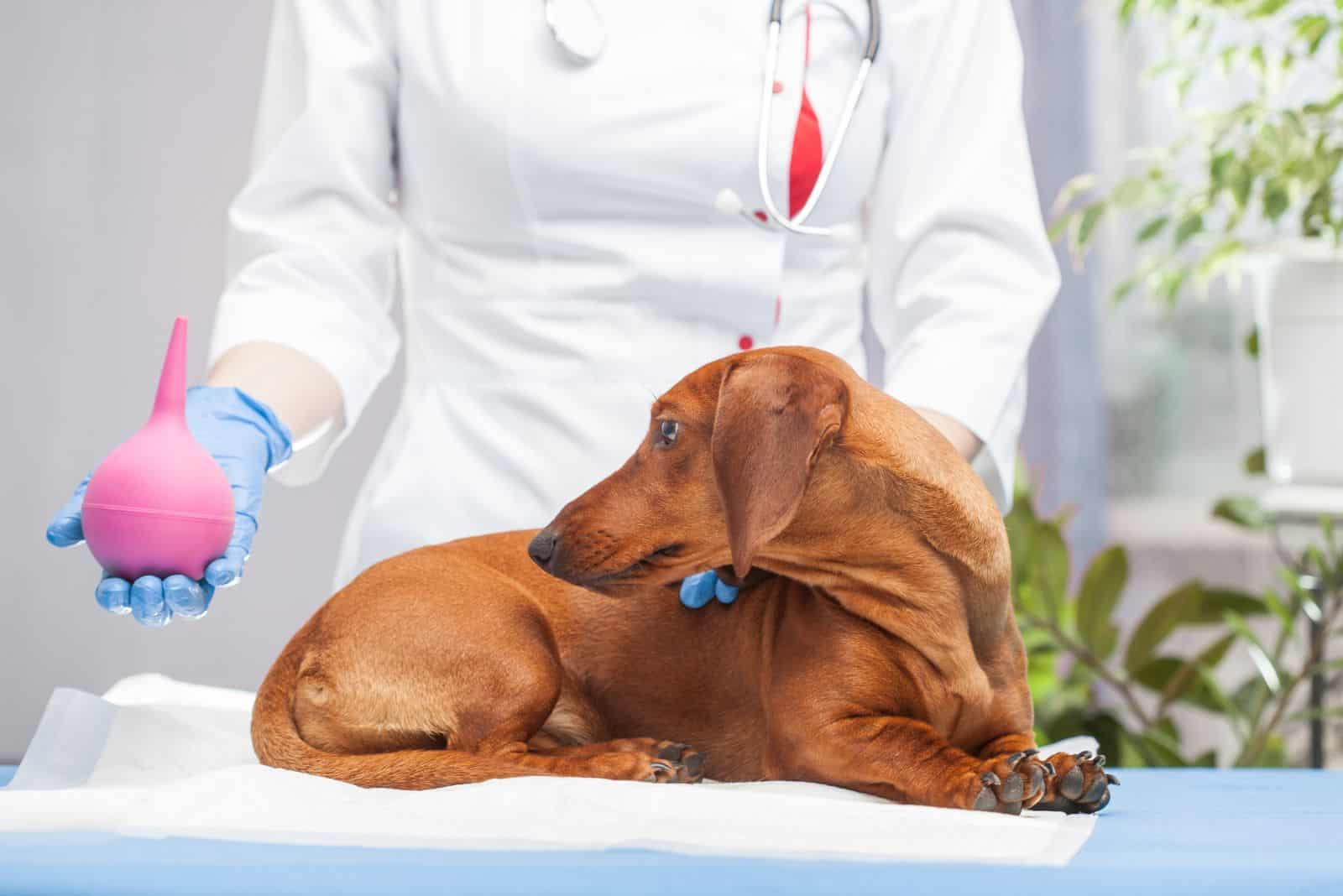
You can either solve the blockage at home or have the veterinarian deal with the obstipation.
The treatment depends on the most common causes that are behind it.
If the reason is that a foreign object is stuck inside your dog, the vet will look at the scans and remove it.
If it’s an issue with the dog’s health, e.g., anal gland inflammation, the vet will also be there for your dog and prescribe a treatment.
Some severe cases of constipation will lead to your dog getting an enema. It’s not painful, it’s just uncomfortable and your dog should poop almost instantly. But, man, the relief is almost instant! Just make sure you don’t give enemas to your dog at home, and don’t ask for it too often, as it may cause the dog’s bowel movement to slow down.
But what if your Fido is constipated because his feces lack moisture content. I know, it’s too graphic and not for everyone’s belly, but a dog owner must be prepared for everything. Constipation is a health issue, and you should help your dog with it, not feel disgusted.
Lack of exercise can easily cause constipation, as well as poor water intake. Side effects of certain medications, or even a bad choice of kibble may all lead to constipation.
So, what do you do besides enforcing activity? You turn to home remedies!
If you keep on reading, you’ll find ways and ingredients that will serve as a great help to your constipated Fido.
What Are The Best Home Remedies For Dog Constipation?
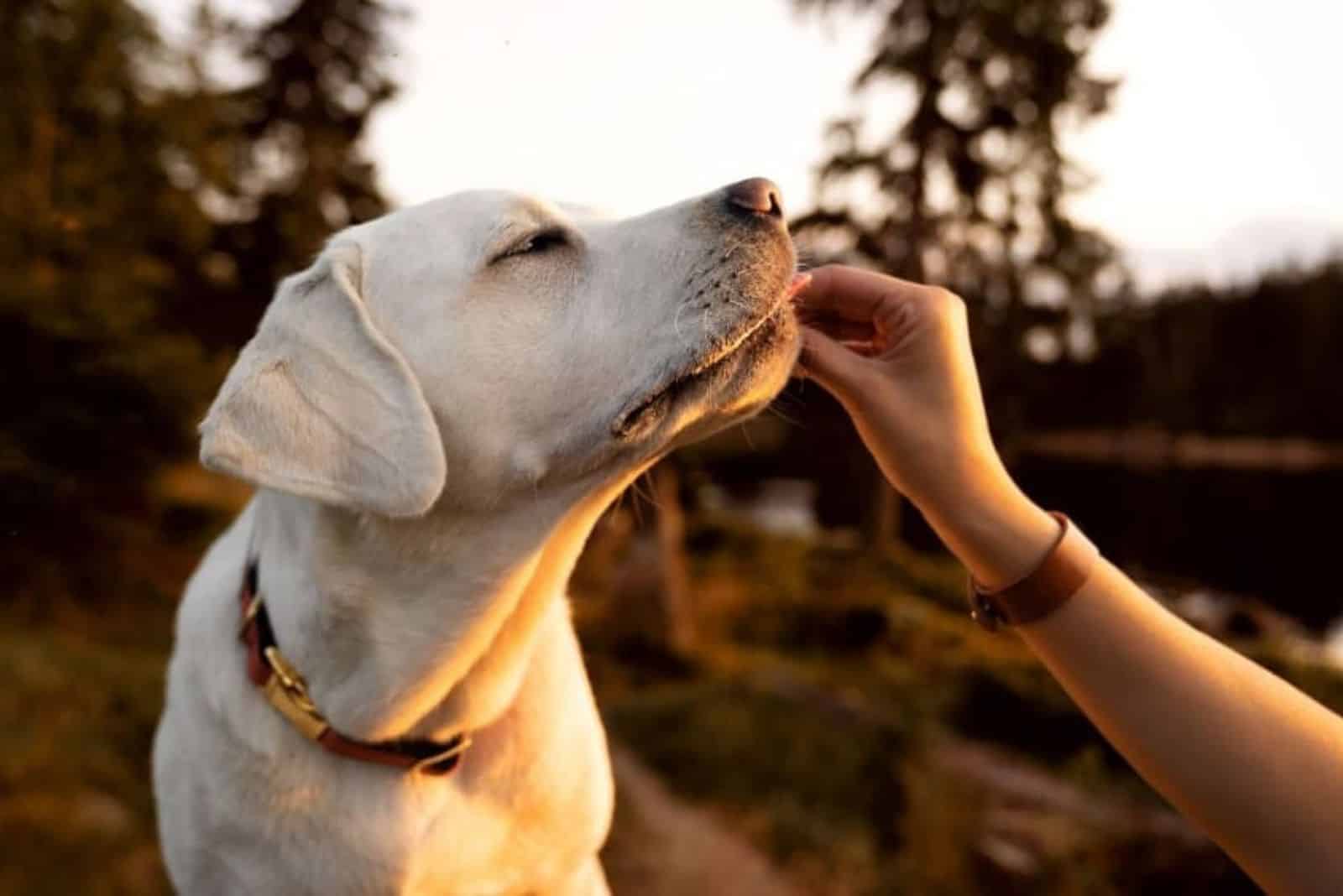
I’m not usually a fan of home remedies, but I can’t deny that some of them are highly beneficial not only for dogs but for humans too.
However, I don’t like to experiment, especially not with herbs, teas, or infusions. I like to stick to the basics and use only the popular methods, already tested by others.
And do you know what the others say? They say there are a bunch of ways and lots of home remedies for dog constipation!
When humans feel constipated, they often pick up a glass of plum or prune juice because it stimulates their digestion like so! But dogs aren’t supposed to eat prunes because of the high sugar intake.
So, what do dogs take? Any other fruit or veggie? You’re about to find out!
Figs
Figs are delicious and dogs can consume them in moderate amounts. They’re one of the home remedies for dog constipation that can be used by humans too.
Figs are super rich in fiber. They stimulate good bowel movement, and they’re easy to hand out to your dog as a treat. Figs are soft and sweet, and your dog will definitely enjoy eating them. Raw, not dried, of course!
You can either hand out figs as a treat or mix them in the dog’s meal. But I’m sure your Fido will love them.
What’s important to know is that since they contain so much fiber, figs shouldn’t be overly consumed. Let’s stick to one or two figs per week if you notice your dog struggling with grainy stools.
Anything over that may cause diarrhea.
Figs are okay but don’t accidentally hand out a fig newton because dogs can’t eat that.
Pumpkin Puree
Autumn is the season for pumpkins, so you better stock up your freezer with bits of chopped-up pumpkins. Why? Because there’s a chance your dog might have constipation issues, but you’ll have a card up your sleeve. Pumpkin puree!
No, we’re not making a pumpkin pie. We’re making one of the easiest, most useful home remedies for dog constipation.
Pumpkin puree is super rich in fiber and your dog can safely consume it.
However, if I were you, I’d make my own puree instead of buying canned pumpkin pie filling. A lot of canned purees contain additives and some other supplements that may cause issues for your dog.
Just bake the pumpkin and use a blender to puree it for your dog. As simple as that!
Apple Cider Vinegar
Apple Cider Vinegar is known for having lots of antioxidants, as well as vitamins. But did you know that it can benefit your dog’s tummy too?
If you add a bit of this vinegar to your dog’s water bowl, you can help him relieve stomach pain and regulate constipation. It is proven that apple cider vinegar works to soothe irritated or inflamed areas.
For example, you can offer your dog vinegar as prevention once in a while to fight any inflammation processes in the dog’s body.
Still, don’t go overboard with apple cider vinegar. Use only one tablespoon per 50 pounds of your dog’s weight. Too much of this vinegar may cause irritations and even diarrhea.
Psyllium Seeds
As one of the finest home remedies for dog constipation, psyllium seeds can be used for both dogs and humans. They’re known as natural laxatives and they’re pretty safe to consume in moderate amounts.
Psyllium Seeds can either come as a powdery supplement or in the form of cereals or baked products.
So, how do these seeds work?
Once your dog consumes psyllium seeds, they will absorb the water in your dog’s intestines and create some sort of paste. That paste will help regulate the dog’s stool.
What’s so awesome about psyllium seeds is that they can be used to control diarrhea and stop dog constipation.
You can offer your dog one teaspoon of psyllium seeds per 5 pounds of the dog’s weight. Don’t just pour them down the dog’s throat. It would be great if you could make a mushy meal and add it, or serve canned food topped with these seeds.
What’s good to know is that psyllium seeds are often recommended by professionals. If you ask your vet about it, he’ll be okay with you having it at home for occasional stool regulation.
Oil
Yes, oil can be used to relieve dogs from constipation, but not just any oil.
I wouldn’t recommend you give your dog sunflower or palm oil. Extra virgin olive oil and organic coconut oil are much better choices.
Sometimes pouring a tablespoon of oil down your dog’s throat will solve the problem more efficiently than adding more water or fiber to the dog’s meal. However, you shouldn’t do this too often.
I find adding a bit of coconut oil or olive oil to my dogs’ meals every now and then more helpful. It regulates their stools, and it never comes out grainy.
Hey, even babies have olive oil added to their first solid meals for better digestion! So, why shouldn’t your dog have it too?
Broth And Ginger
I bet you’re already familiar with the many benefits of ginger.
Although ginger has a characteristic flavor, dogs can enjoy it too. But make sure only moderate amounts will be offered to your pooch.
Ginger is known as one of the best helpers for upset tummies. It relieves nausea but also calms down irritations and any inflammation in the digestive system. Still, you can’t just offer your dog a piece of ginger to chew on because your dog won’t eat it.
However, you can mix ginger with some liquid and ensure it will be consumed by your dog.
Dog owners find chicken or beef broth quite helpful in this situation. I’d like to point out that picking store-bought broth is not the brightest idea because of its high sodium levels. It’s super easy to make broth at home, and you can even use it for your cooking!
What you should do is add some ginger powder to the broth. The dosage should be more than 25 grams per pound of the dog’s weight.
The ginger will calm down the irritated bowels and the broth will hydrate your dog.
How Can I Prevent My Dog From Getting Constipated?
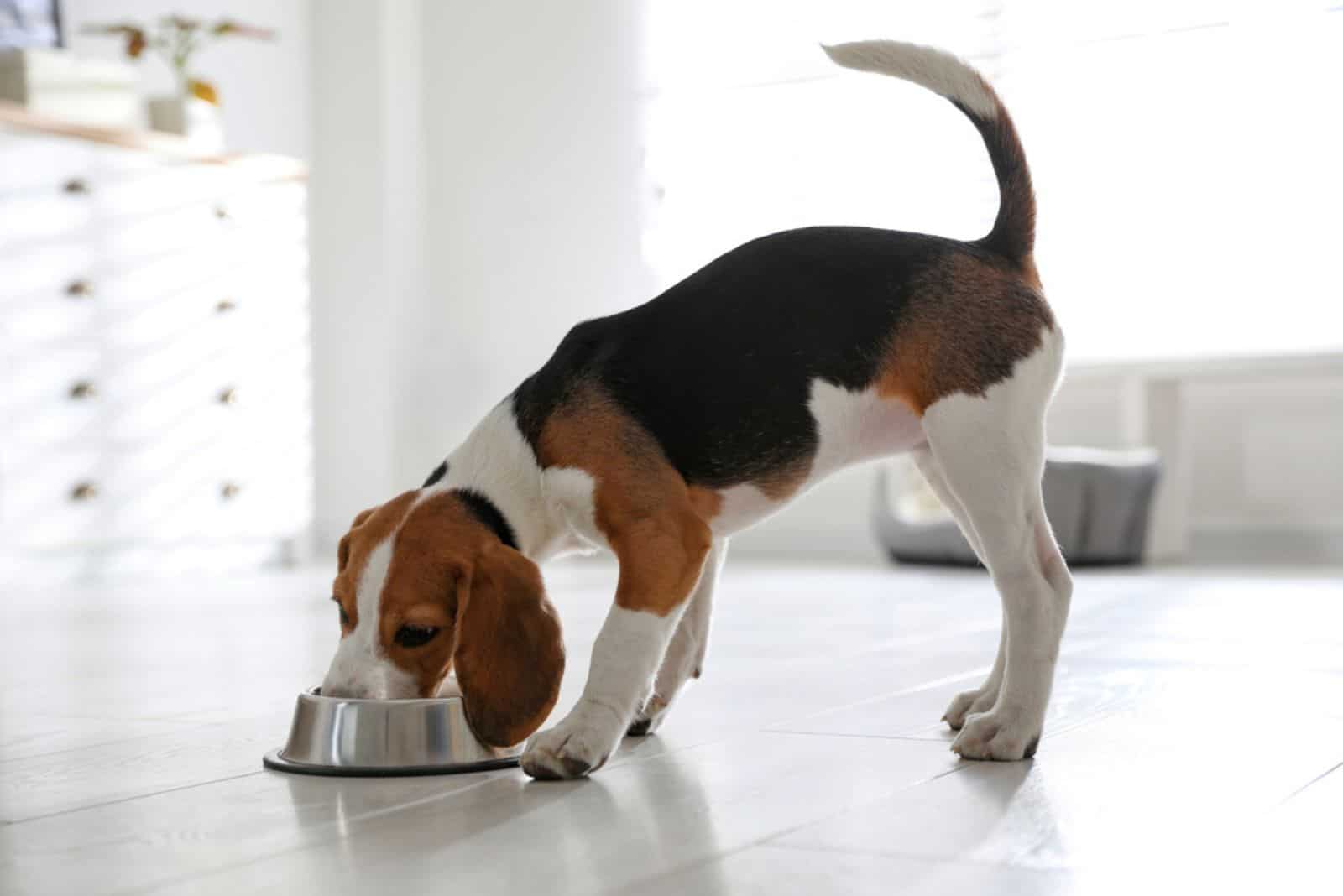
There are numerous ways by which you can prevent your dog from getting constipated. Doggy constipation isn’t something you should be worried about, but it is unpleasant. It’s hard to watch our dogs struggling with #2.
I always say prevention is the best medicine. You can do tons of steps to prevent your dog from catching on to something, and even from getting constipated.
Constipation is rarely something that happens all of a sudden. It usually takes a few days of poor judgment to cause constipation in your dog. If the dog is on a brand-new formula, it can cause constipation. If his kibble is lacking fiber, then he’ll always struggle with constipation.
What your dog needs are softer meals, enough water, and a fiber-rich diet. Healthy eating habits are another major reason why a dog has normal stools. If your dog has irregular, poorly designed meals, there are huge chances he’s going to end up with digestion issues. Constipation is only the beginning. Numerous digestive problems like irritable bowels may occur because of the stress caused by irregular meals.
Besides enforcing good eating habits, there is also one thing you alone can do to make sure your dog goes potty every day.
Have you heard of puppy massages? It’s a thing, and it works wonders! When human babies are born, they sometimes get massaged by their parents to stimulate pooping. Well, a similar thing can be done with dogs.
Here’s how you can massage Fido to help him go number 2!
Your dog should be laying on its back, paws facing up in the air, just like when you’re giving him tummy rubs. You should gently press his belly and move your hand clockwise and counterclockwise for five minutes.
Then, after the five minutes have passed, your circles should become wider. This takes only ten minutes, but it can be of great help to your dog.
Try to make this a habit of yours while you’re playing with your dog. You’ll see, Fido will love it!
Which Foods Are Natural Stool Softeners?
As I like to repeat myself, prevention does half of the work for you. It’s better to be safe than sorry.
Introducing natural stool softeners as a part of your dog’s regular diet is a great idea. This doesn’t have to mean your dog’s entire meal should consist of such ingredients. Every once in a while, try to add delicious, but also beneficial ingredients to make the dog’s stool smooth, not grainy.
The foods I’ve mentioned previously like pumpkin puree or figs are natural stool softeners. However, it’s not a good idea to overuse them. I would never give my dog pumpkin puree for several days in a row. It can result in severe diarrhea.
A softer stool is okay, but you have to figure out where the limit is.
Believe it or not, the best stool softener is water. If your dog takes plenty of water on a daily basis, he shouldn’t struggle with constipation. Going number 2 is simpler for dogs that drink enough water. Water gives fecal matter hydration and doesn’t cause grainy stools.
However, water isn’t the only thing your dog needs on a daily basis to prevent constipation. Introducing a fiber-rich diet is probably the best decision you can make. The results will be visible almost immediately.
Your dog can enjoy its regular kibble, but I’d top that kibble with some ingredients like chopped apples, broccoli, carrots, peas, beans… These are only a few options. Google further if you want to make that list bigger, but just a few fruits or veggies would be enough to ensure a proper dose of fiber.
On top of everything, these fiber sources don’t need to be a part of the main meal. Use them as treats while playing or training. Just make sure you don’t add too much fiber to your dog’s diet. We all know what that results in, right?
Should I Give My Dog Probiotic Supplements?
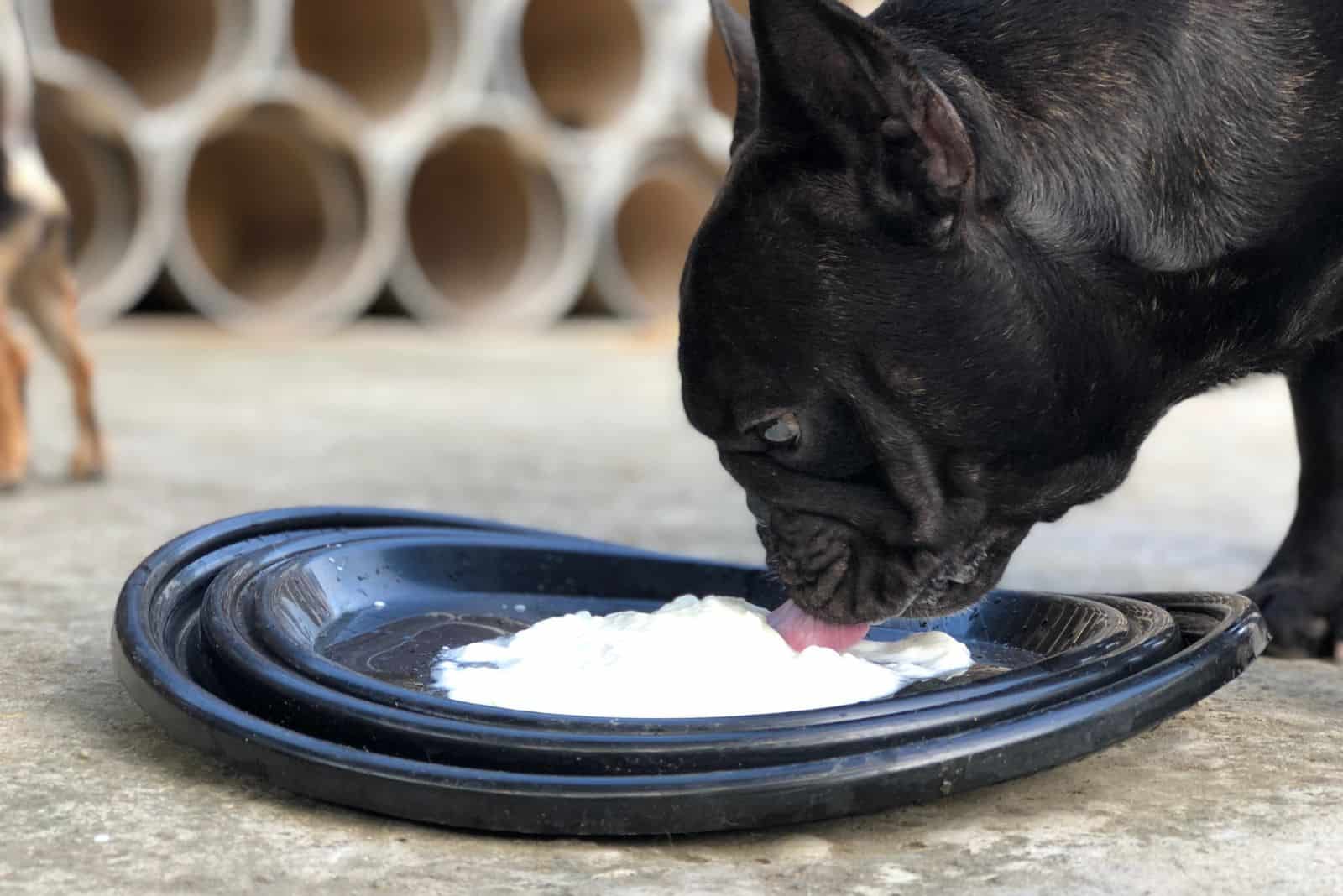
I find probiotics and probiotic supplements a great idea for daily consumption. As always, consult your vet before you introduce them to avoid potential problems.
Anyways, probiotics are magical for good digestion. Dogs are safe eating some dairy products, including yogurt. Yogurt contains so many strains of probiotics it’s incredible! Not only does it refresh your dog, but also gives lots of good bacteria to his belly
And what do these good bacteria do? They help restore the natural balance in your dog’s gut. Simply put, probiotics will help bring your dog’s digestion back on the right track.
In a lot of cases, a dog’s tummy and intestines will get disrupted because of a certain condition. Stomach viruses are often to blame. The natural balance of good bacteria gets totally messed up. Your dog either gets the runs or gets constipated.
You can absolutely serve probiotic supplements to your dog if he’s been diagnosed with disrupted digestion.
I always suggest you pick natural probiotics instead of supplement pills from the pharmacy. Here’s something you probably didn’t know, watermelons are rich in probiotics too, and we all know how much dogs love watermelon.
Can I Give My Dog Dietary Fiber Supplements?
You can definitely give your dog dietary fiber supplements, but that’s not a decision you need to make on your own.
Before you decide which supplements to get, it would be better to run the idea by your vet. Your dog’s vet knows whether your dog really needs them or not. If your dog suffers from chronic constipation, fiber supplements are most likely in order.
However, personally, I’d turn to supplements only if natural home remedies for dog constipation don’t work. Enforcing healthy habits is more beneficial to your dog’s entire health status.
Instead of picking up supplements, try to stimulate the dog’s hydration. Make sure there’s always drinking water nearby.
To prevent hard stools, your dog does need enough fiber, but how about natural fiber? Maybe your dog likes apples or beans so much, you can list them as your daily ingredients!
Sometimes the constipation isn’t that severe, just some clean fresh water and extra fiber in the meal can solve it.
Always pick natural, at-home remedies for your dog instead of store-bought supplements.
When Is It Time To Ask For Vet’s Help?
You can try as hard as you can, but sometimes it’s not possible to solve a problem with home remedies.
Although home remedies for dog constipation often work and there’s no need to ask for your vet’s help. Sometimes you just gotta call in and book a check-up.
It’s okay if your dog doesn’t have a bowel movement today. But, if the stool isn’t present the next day either, maybe it’s time to worry a bit.
Dogs usually have a daily bowel movement. If it skips more than two days, something is wrong. The problem may or may not be a huge one, but it’s important for it to be treated.
If I were you, I’d ask for a vet’s help if I notice my dog struggling to go poop.
The most obvious sign of doggy constipation is your dog squatting around its usually potty place, trying so hard to let out something. But nothing happens. Your dog is frustrated, in pain, and needs relief as soon as possible.
Home remedies for dog constipation usually work like a charm, within a few hours of consumption. You can repeat one remedy or try another one if you believe the problem can be solved at home.
But, if you’ve used all your tricks and poop is nowhere to be found, then it’s time to ring in and let the vet check your dog.
The vet will usually run some tests, maybe even scans to make sure your dog is not having a bowel obstruction of some kind. In most cases, treatment is a fiber-rich diet, but sometimes laxatives are in order.
I suggest you don’t take laxatives on your own. Better let the vet prescribe how much your dog needs. We don’t need diarrhea after constipation!
Final Words
As you can see, home remedies for dog constipation really work. You just have to try a few of them to see which one works the best for your dog.
Some dogs find olive oil to be quite helpful. Others prefer to eat some pumpkin puree. No matter which remedy you pick, the important thing is that it helps.
As a dog owner myself, I recommend you always have the mentioned home remedies for dog constipation at home. These are normal ingredients that can be found in any cupboard.Be prepared for everything! Don’t let your dog’s constipation surprise you.

